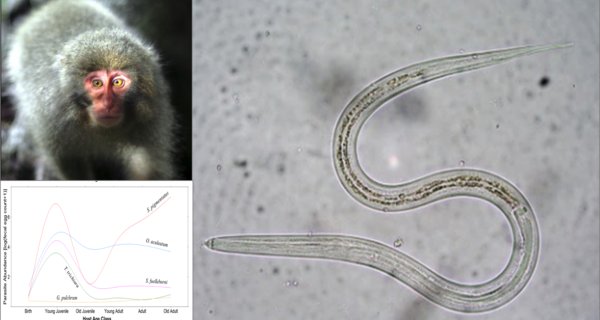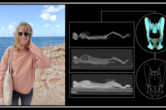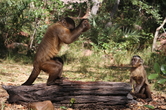Got Worms? Parasite Epidemiology in Primates

In a new paper, CICASP's Andrew MacIntosh explains why we should all care about Japanese macaque worms, and what they have to tell us about the ecology of wild primates.
Building an empirical model
Parasites are ubiquitous in nature and can have profound impacts on wild and domestic animals, including humans. Because primates are a highly threatened group of animals, it's vital that we do our best to understand the interactions that occur between them and all of their potential disease-causing organisms, both for the sake of conservation and because the ever-encroaching nature of human development will continue to put pressure on primate habitat and increase the possibilities of bidirectional exchange of pathogens.
No doubt this is an extremely difficult task. Collecting biological samples from wild primates is a considerable challenge, and doing so in a systematic way is often impossible. In this invited review paper appearing in the journal Primate Research as part of a symposium held in February 2013 focusing on ecological roles of primates (hosted by Dr. Yamato Tsuji at the Kyoto University Primate Research Institute), MacIntosh calls for the establishment of an empirical model system through which to improve our understanding of the mechanisms that contribute to parasite infection in wild primates.
Whose got worms?
In the paper, MacIntosh reviews epidemiological patterns of nematode (roundworm) parasite infection in Japanese macaques, such as age- and sex-biases in infection and the importance of social networks in parasite transmission, compares these results to expectations borne of previous studies and provides numerous suggestions for future research in primate-parasite ecology. This review reminds us that parasitism is fundamentally an ecological interaction and that, like predation and competition, parasites play important roles in mediating ecosystem health, including the various functional roles that primates may fulfill.
Find out more by reading the original review article on the Primate Research website.











